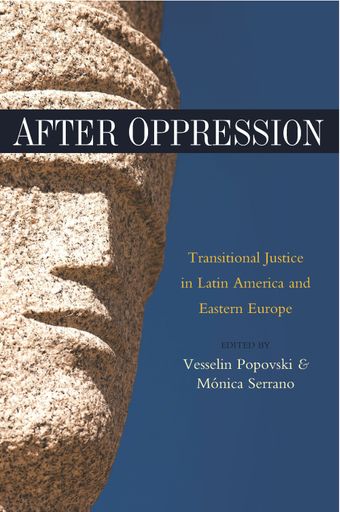- Home
- Books
- After Oppression
- Chapter
Transitional justice in Guatemala

- Authors: Carmen Rosa de León Escribano and María Patricia González Chávez
- Main Title: After Oppression , pp 196-221
- Publication Date: January 2013
- DOI: https://doi.org/10.18356/51945aaa-en
- Language: English
This chapter presents an analytical review of the application and/or absence of transitional justice mechanisms in reparations for human rights violations committed during the 36 years of Guatemala’s internal armed conflict (1960–1996). Like Guatemala, other countries have made the change from authoritarianism to democracy, and during this process there has been a close link between accountability for past human rights violations and the success or weakness of the development of a democratic system. The objectives of this work focus, therefore, on identifying the existence, quality and effectiveness of these accountability mechanisms so that they are able to provide resources for analysing the strengths and weaknesses of the country’s democratic consolidation. We start with a contextual vision of Guatemala – with what has been called a ‘double transition’ from authoritarianism to democracy and from the internal armed conflict to peace. We follow with an analysis of the transitional justice approach experienced during the post-conflict period in Guatemala, leading us to an overall assessment of the situation and lessons learned.
© United Nations
ISBN (PDF):
9789210558938
Book DOI:
https://doi.org/10.18356/abdf8199-en
Related Subject(s):
Human Rights and Refugees
Sustainable Development Goals:
Countries:
Guatemala
-
From This Site
/content/books/9789210558938s003-c007dcterms_title,dcterms_subject,pub_keyword-contentType:Journal -contentType:Contributor -contentType:Concept -contentType:Institution105
/content/books/9789210558938s003-c007
dcterms_title,dcterms_subject,pub_keyword
-contentType:Journal -contentType:Contributor -contentType:Concept -contentType:Institution
10
5

